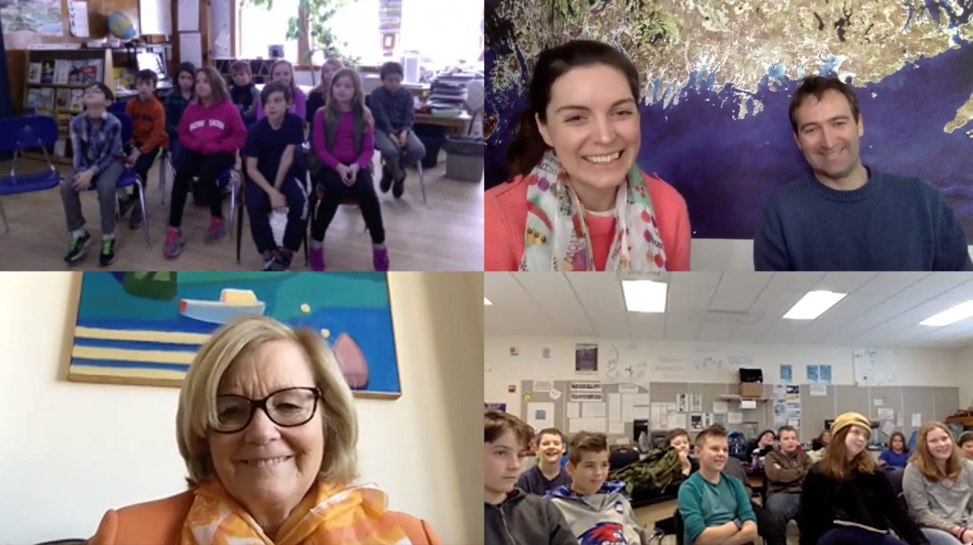Congresswoman Chellie Pingree had some inspiring words for island and coastal students during a video conference call on December 19th. As the students from Long Island Elementary in Casco Bay and Edna Drinkwater School in Northport shared questions as well as the marine-related project work they’ve been doing over the last year, Congresswoman Pingree highlighted the importance of talking to everyone about what they’re learning and the critical issues the ocean is facing.
“It’s great to have students learning about the issues facing our coast, and I appreciate your teachers for organizing this and doing the work they’re doing, said Pingree. “It’s important we make people aware of what’s happening and do things about it before it’s too late. Don’t underestimate the power you have to tell your stories and convince the adults around you.”
From growing kelp and exploring issues around local water quality to understanding how both the ocean environment and ocean uses are changing, the students and teachers shared some of their work with Pingree during the meeting. Pingree complimented the students on everything they’ve been doing and noted that the conversations in the school had broader implications. “Kelp aquaculture is an important part of the future of the coast of Maine,” she said.
Marci Train, the 3rd-5th grade teacher on Long Island, talked about how the water off of Long Island isn’t adequate to support the harvesting of shellfish or to allow kelp to be marketed. The work the students are doing helped inspire community members to start small aquaculture projects and form a community partnership to help open up the waters off of the island.
“The students made me promise that by the time they are old enough to do aquaculture, they will be able do it off of the island,” said Train. We now have a group of 15 community members who are interested in helping us lift the water quality bans.”
John Van Dis, the middle school science teacher at Edna Drinkwater School in Northport, talked about how important other partnerships were in supporting the students. Hurricane Island Foundation helped the students start a kelp farm, and the Maine Math and Science Alliance is facilitating a project to help students learn about micro-plastics. Both teachers said that without funding from the SEANET project, a National Science Foundation EPSCoR grant through the University of Maine and University of New England focused on expanding the aquaculture industry in Maine, it would have been a lot harder to start these projects.
Train also commented that the work has had broader benefits in the community at large. Since getting funding through Maine Sea Grant and the SEANET project, she noted that there had been a lot of people on the island doing aquaculture projects on their own. “It really sparked people on the island to look at other ways to use the ocean,” she said.
Both teachers traveled to Washington, DC last year to talk about how they are using the Northeast Ocean Data Portal and information from the Northeast ocean planning process in their classrooms. The Northeast Ocean Plan has helped provide a framework and connection between the long-term sustainability of the ocean and the future of their communities.
Congresswoman Pingree said the video conference was the highlight of her day, and she thanked the students for the letters they sent and for sharing their questions and work with her. She also reiterated how important it is for students to continue sharing their voices and personal experiences with decision and policy makers. Talking to family members, community members, and even friends or relatives who live elsewhere about growing kelp or why the ocean is important is a vital step in helping others understand the complexities of the ocean. The more we are informed about complex issues, the better able we are to make good decisions.
“You are our future scientists, and this is your future planet,” said Pingree. “We need to turn it over to you in a way that respects you and ensures that you have a high quality of life in the future. We also need you to be those scientists, policy makers, and politicians who make sure that we take better care of our world.”


